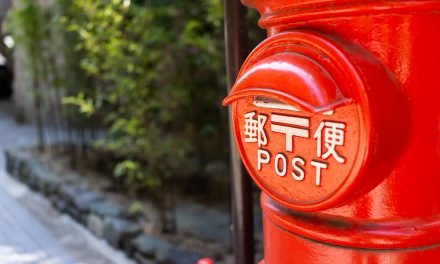
Preparing for Postal Privatization: Post Offices in Japan
As the clock ticks toward the start of its 10-year privatization process, Japan Post is struggling to keep its nationwide post office network from shrinking, particularly in rural regions where services are heavily dependent on individuals and other parties that serve as local agents. Postal Agencies Decrease to 30-Year Low Japan Post’s network comprises post offices and local postal agencies run mainly by commissioned individuals, agricultural and other credit cooperatives, and municipalities.
Agencies account for about one-fifth of Japan Post’s network, which had a total of 24,525 offices and agencies at the end of July.
Many agencies are located in under populated rural regions, and a number of them have been temporarily closed as these regions face steep falls in population.
In May this year, the number of postal agencies, excluding such suspended ones, fell below 4,000 for the first time in 30 years in a protracted downtrend that started in 1995.
Aging individuals who act as agents are struggling to find successors, while the number of agencies run by credit cooperatives decreased 78 to 486 in the 12 months through March as many institutions have been shut down on a wave of realignments.
The biggest contributor to the recent decrease, however, has been municipalities. The number of agencies runs by municipalities more than halved to 164 from 349 in the same 12 months.
“When the privatization process starts, post offices and agencies will be treated as bank agencies supervised under the Banking Law,” a Japan Post official says. “This makes it difficult for many municipalities to continue running their agencies.” But some rural residents are standing up to fight the downtrend. Grass-Roots Efforts Emerging In the rural town of Kisa in Miyoshi, in the western Japan prefecture of Hiroshima, a postal agency was suspended from the end of March due to the retirement of the agent.
A group of local residents offered to take over the operations. Thanks to them, the agency was resumed at the start of August. Hiromu Hoshino, one such resident, became head of the agency.
“The postal agency is the only window for financial services in the district and its absence was a big problem to older people,” says the 67-year-old Hoshino. “We wanted to prevent this.” In the central Japan prefecture of Shizuoka, four former postal workers jointly set up a corporate association to take over the operations of an agency in the Mera district from the town of Minamiizu in June.
This was the first time that the operations of a postal agency have been transferred to a corporate association.
One member of the Mera association says it is easier to find a successor if the agency is run by a corporate body instead of an individual.
Japan Post is increasing efforts to keep postal agencies from falling in number. In January, the corporation raised fees paid to agents.
Backed by the fee hike, the number of postal agencies that resumed operations after temporary shutdowns totaled 93 in the four months through July, a 3.5-fold jump over the same period last year.
Despite the sharp rise, however, the number of resumed agencies remains comparatively small. The privatized post office network management company still faces the task of ensuring stable operations for the nationwide system.












